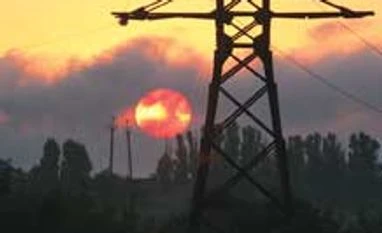Citing the widening revenue gap of around Rs 28,000 crore, Delhi's three private power distribution companies have pitched for early announcement of annual tariff revision.
The companies, which have sought up to 20 per cent hike in tariff, have communicated to DERC about the resource crunch being faced by them owing to steep rise in power purchase cost.
The Reliance Energy-backed BSES discoms has petitioned the Delhi Electricity Regulatory Commission (DERC) for upto 19 per cent hike, while Tata Power Delhi Distribution Ltd (TPDDL) has demanded an increase of 20 per cent.
Making a case for hiking tariff, the discoms have argued that their combined revenue gap due to absence of a cost-reflective tariff has gone upto Rs 28,000 crore and the financial position would worsen further if there was no increase in rates.
The total under recoveries of BSES Rajdhani Power Ltd and BSES Yamuna Power Ltd have risen to Rs 20,000 crore while for TPDDL, it has been estimated at Rs 8,000 crore, as per the discoms.
On June 12, the DERC had hiked tariff by upto six per cent to compensate the discoms for rise in power purchase cost. The AAP government had strongly criticised the DERC for the hike.
DERC chairman P D Sudhakar said the discoms have been buying 95-98 per cent of power as per provisions of the long-term power purchase pacts signed between erstwhile Delhi Vidyut Board (DVB) and state-run power utilities like NTPC.
Power experts said Delhi discoms have to incur 60 per cent more cost on buying power compared to other states because of the long-term power purchase.
The companies, which have sought up to 20 per cent hike in tariff, have communicated to DERC about the resource crunch being faced by them owing to steep rise in power purchase cost.
The Reliance Energy-backed BSES discoms has petitioned the Delhi Electricity Regulatory Commission (DERC) for upto 19 per cent hike, while Tata Power Delhi Distribution Ltd (TPDDL) has demanded an increase of 20 per cent.
Also Read
The DERC is in the process of finalising the tariff for 2015-16 and is likely to announce the new rates by the end of August after taking views of various stakeholders including the consumers.
Making a case for hiking tariff, the discoms have argued that their combined revenue gap due to absence of a cost-reflective tariff has gone upto Rs 28,000 crore and the financial position would worsen further if there was no increase in rates.
The total under recoveries of BSES Rajdhani Power Ltd and BSES Yamuna Power Ltd have risen to Rs 20,000 crore while for TPDDL, it has been estimated at Rs 8,000 crore, as per the discoms.
On June 12, the DERC had hiked tariff by upto six per cent to compensate the discoms for rise in power purchase cost. The AAP government had strongly criticised the DERC for the hike.
DERC chairman P D Sudhakar said the discoms have been buying 95-98 per cent of power as per provisions of the long-term power purchase pacts signed between erstwhile Delhi Vidyut Board (DVB) and state-run power utilities like NTPC.
Power experts said Delhi discoms have to incur 60 per cent more cost on buying power compared to other states because of the long-term power purchase.
)